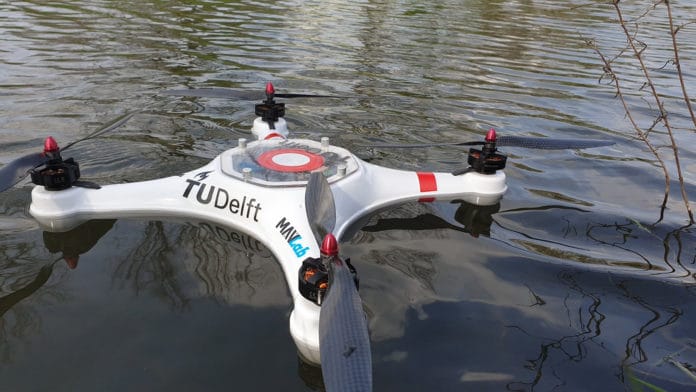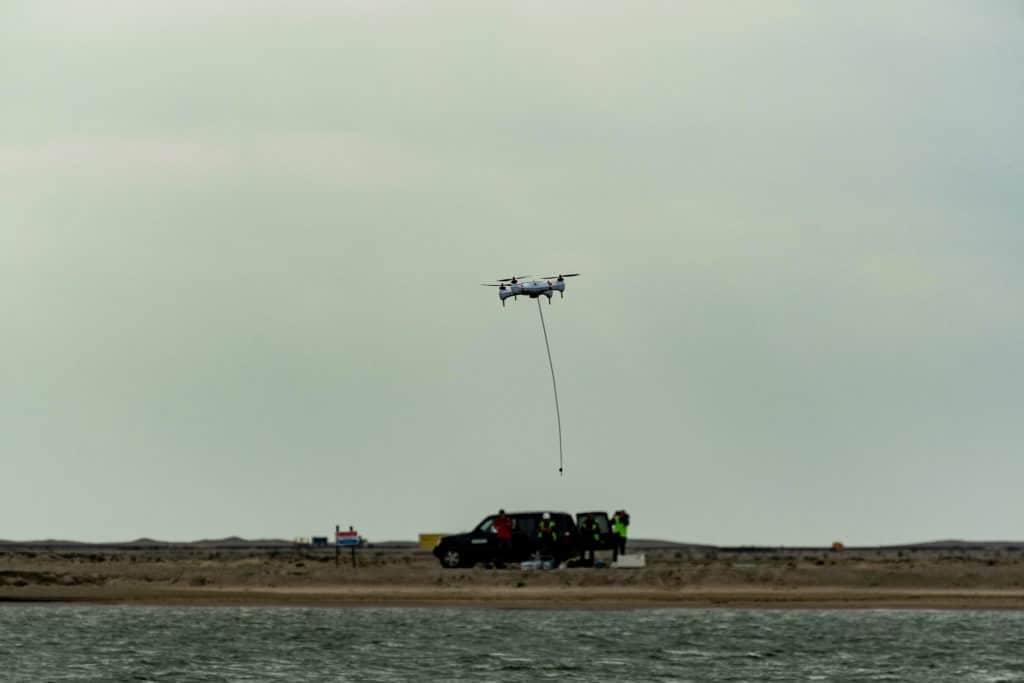Researchers at TU Delft have developed a so-called ‘Pelican Drone’: a drone that can quickly take freshwater samples, combined with a measuring instrument for direct analysis of water quality.
When water is polluted with dangerous germs or pollutants, the authorities should be aware of this as soon as possible. Water samples are currently still manually taken from shore or a vessel and sent to the laboratory for microscopic examination. However, the transport of a sample to the laboratory can negatively influence the quality of the sample. This method is also relatively expensive and labor-intensive.
In order to be able to sample water faster and more often at no extra cost, the amphibious Pelican Drone could be helpful. The watertight drone developed by the researchers from TU Delft is capable of landing on and even diving underwater automatically.
With the help of the camera onboard, the Pelican Drone from Delft also automatically searches for suspicious spots – such as large accumulations of algae. The drone then lands on the water and takes a sample. It is even planned that the device can also dive under the water surface, for example, to investigate deeper flowing water. After taking the sample, the drone flies back to shore and hands it over to a specially designed analyzer of the Dutch startup CytoBuoy.
Samples are automatically and directly analyzed in a CytoSense, a flow cytometer that scans and photographs algae and other microorganisms. Within a few minutes, tens of thousands of organisms are scanned, and thousands are photographed. The data is automatically processed and uploaded to an online portal. This prevents deterioration of the sample as much as possible. Upon return, the drone charges itself in a charging station.
By combining the amphibious drone with the mobile analyzer, it is possible to monitor waters autonomously and virtually in real time. The use of drones is also cheaper than every time sending a human employee by boat.
The Pelican was tested this summer on a lake in the Netherlands. The second test flight was completed, which also ran without major problems. The hope of the researchers is now that it will soon be possible to launch a finished product on the market and to win many customers for it.
The project is an initiative of Rijkswaterstaat, the MAVLab of TU Delft and CytoBuoy, with the aim of far-reaching automation of water monitoring. Mapture.AI provides the charging station for this project.

